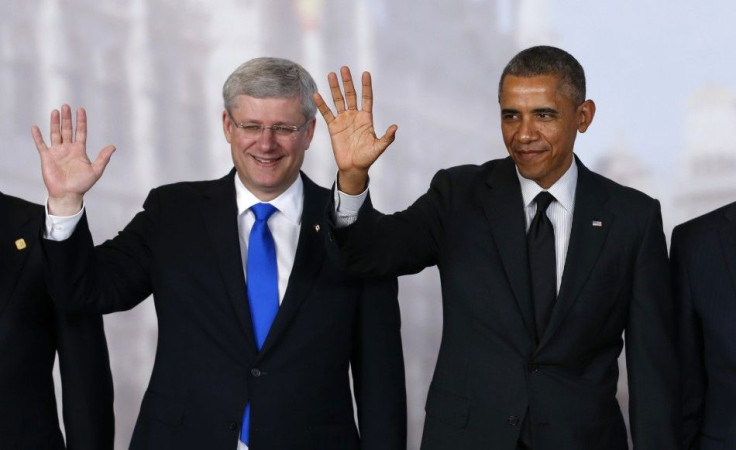Canada-Japan Trade Talks Stalled Under TPP Impact

Trade talks between Canada and Japan are reportedly stalled because Japan is not showing interest. Reports in the Canadian media quoted an internal memo from the Department of Foreign Affairs, Trade and Development saying that the level of progress with Japan has failed to meet expectations since the talks started in March 2012.
TPP Factor
The memo said Japan is showing more interest in the ongoing 12-country Trans- Pacific Partnership talks led by the United States, and also involve Canada, Mexico and Australia, reported Huffington Post. The official note was prepared for an April 17 meeting of department officials. It informed the officials that Japan is dragging feet and not committing a date for the eighth round of bilateral trade talks.
However, Trade Minister Ed Fast told the House of Commons trade committee on May 11 that both Japan and Canada are still working to set a date for the next round. The Canadian government is armed with a joint study report that a free-trade deal with Japan would boost Canada's economy by CA$3.8 billion a year. While analysts have been upbeat about the possibilities of a Japan-Canada FTA breakthrough, the internal memo paints a different picture.
While referring to Japan's “overwhelming focus” on the TPP, the Trade ministry’s memo also claimed that Canada made “some progress in the Canada Japan Economic Partnership Agreement negotiations with seven rounds to date”. But, overall, the CJEPA text remains "less developed than expected" after three years of negotiations.
The memo also says Japan turned down two proposals by Canada to host eighth round of talks in early 2015 and Canada is waiting to see what will happen after the next TPP ministerial meeting. “Chief negotiators met in Tokyo April 9-10 to discuss a way forward, but Japan remains unwilling to a date for the next round without more clarity on the TPP timeline and outcomes," the note added.
Canada has been pinning hopes on stitching free trade agreements with leading Asian economies to hard sell its energy products in Asia, after Keystone XL pipeline project was snubbed by the U.S and its plans got stalled in carrying Alberta bitumen across the United States to Gulf coast refineries.
Bilateral Agenda
Meanwhile, a report by Globe and Mail threw more light on Japan’s thinking, which said, despite being the world’s third-largest GDP, Japan has been feeling a loss of momentum at the economic front in recent years. Prime Minister Shinzo Abe is hoping that a successful TPP will galvanise Japan as part of the “Abenomics’ plan and revive the economy.
As for commonalities between Japan and Canada, analysts say both countries are under pressure to open their much protected agriculture sectors, particularly Canada’s dairy sector. According to International trade lawyer Lawrence Herman, “the TPP talks are the biggest game going, and the stakes are extremely high for both Canada and Japan. Reverting to a bilateral agenda would be risky, and would be the wrong signal at the wrong time.”
The TPP wave is altering equations in Washington too. To get the TPP on track, President Barack Obama has aligned with Republicans in Congress than relying more on his own Democratic Party, the report noted.
(For feedback/comments, contact the writer at k.kumar@ibtimes.com.au)





















